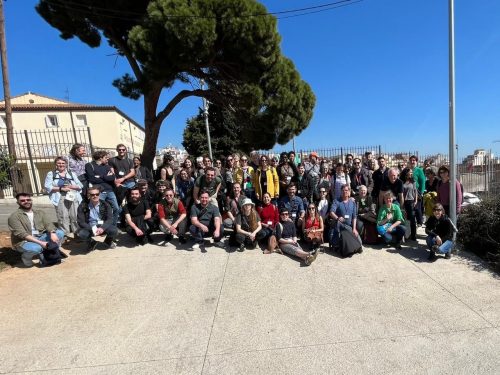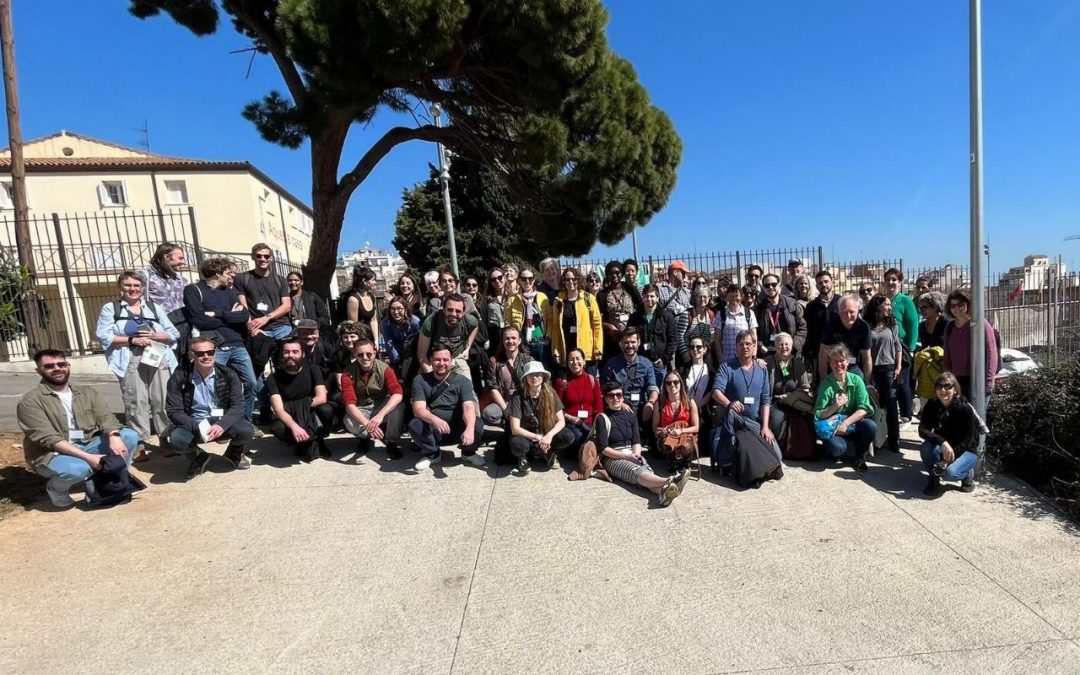The Edible Cities Network held its 2nd annual conference, ‘Advancing the Edible City’, from the 15th – 17th March 2023. This built on the success of 2022’s ‘Making Cities Edible’ conference, and was the first year that the annual conference was held in-person. The conference was hosted and co-organised by RMIT University, the Solidarity Foundation of the University of Barcelona, and Humboldt Universität zu Berlin.
With a combination of keynote talks, roundtable discussions, and field trips to urban food projects in Barcelona, the event provided a platform to hear from experts in the fields of urban farming, sustainable food collectives, community gardening, and food systems research. It also offered a space to create and discuss future visions for our urban food systems at various networking sessions.
40 speakers representing 25 different organisations spoke as guest speakers, and they were heard by an audience of 125 in-person attendees, with speakers and in-person attendees coming from 20 countries across 4 continents. On the first day, 100+ online attendees also logged into the live stream.
Kicking off with talks, discussions and the Edible Cities Network Awards
The first day was held in the beautiful Aula Magna of the Universitat de Barcelona, and opened with short remarks from the various conference organisers, as well as short speech from the commissioner of Food Policy in Barcelona, who remarked that ‘cities must becomes allies’ in the fight to transform our food systems.
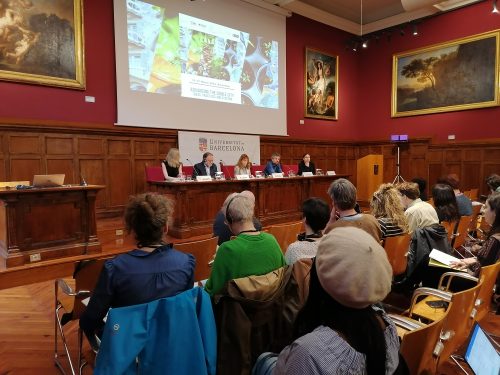
After a day of talks and discussions, there was a poster and networking session, where representatives from 8 different organisations presented posters explaining their work. Simultaneously, attendees had the option to go on an interactive walk to a nearby market, creating their own ‘edible maps’ en route where they drew maps based on the greenery they could see, and would like to see, in the area.
The day ended with the Edible Cities Network Awards Ceremony, where four winners from very diverse initiatives were awarded.
Finding out more about greening Barcelona & trips out into the field
Day two kicked off with a session focussing upon urban planning in the city of Barcelona. Attendees heard about the city’s urban nature plan, whose goals include increasing the amount of green space by 1m2 per resident, doubling the number of participants in nature-based activities, adding an extra 100 hectares to the city’s natural parks, and creating 10 biodiversity shelters. The administration also introduced the city’s urban agriculture strategy, which focusses upon three main objectives: more greenery and biodiversity; conservation and improvement of existing biodiversity; carried out with and for residents, done using approaches involving governance and education.
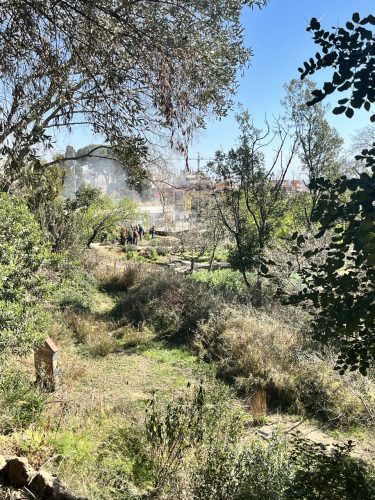
The session was followed by a tour of the recently reopened Jardines del Doctor Pla i Armengol, where gardeners from the association for the promotion of urban gardens gave a tour of the produce growing. The rest of the day was spent on field trips, from which there were three to choose:
1: Edible City Solutions, Social Challenges, and Education – organised by the University of Barcelona Solidarity Foundation. This trip included a visit to ‘ASSIS’ Foundation and Centre Cruillo, a garden where the FSUB provides a qualification in urban agriculture for vulnerable inhabitants of the city. It ended with a tour of the ‘Rec Comtal’, a canal that supplied Barcelona with water for ten centuries.
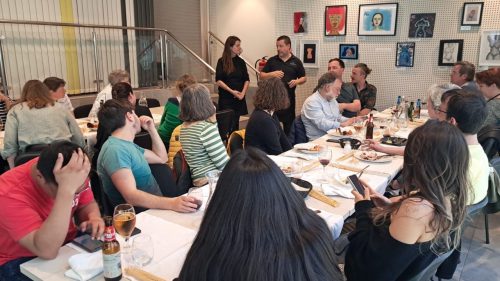
2: Promoting agroecological transition in Collserola Natural Park – Arran de Terra Co-operative. Attendees visited the vineyard L’Olivera in Collserola, a natural park on the outskirts of Barcelona that has over 30 peri-urban agriculture initiatives. The vineyard works with socially excluded citizens who live on-site, and gardens using agroecological practices.
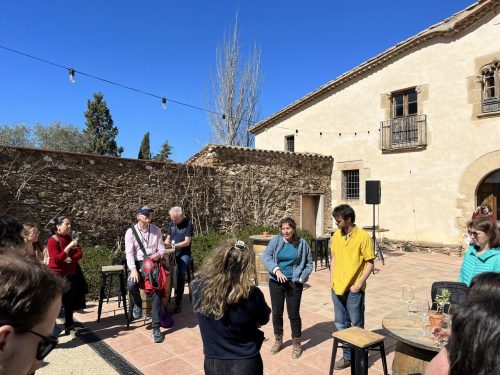
3: Permaculture & radical social change – 12p Permaculture Design. Attendees visited the Can Masdeu centre and its community gardens, and enjoyed a workshop on permaculture, gardening, and worm composting held by permaculture educator Alfred Decker. The land has been managed as a commons by the Can Masdeu initiative – a network of projects attempting to recover the valley as an agricultural and social space – since 2001.
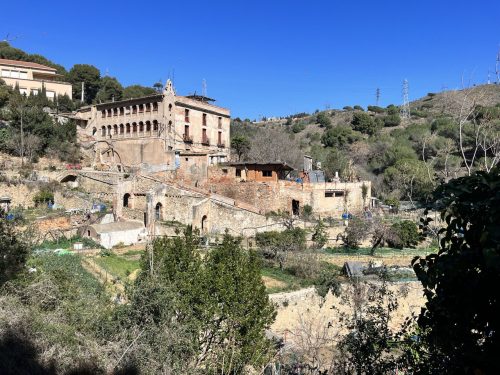
Engaging the margins and filling foodbanks
The final day opened with talks focussed on ‘engaging the margins’, and was held at the Universitat de Barcelona’s recently opened Food and Nutrition Campus. Discussions opened on the theme of ‘edible schoolyards’, looking at how actors produce edible schoolyards, and what the barriers are for implementing more greenery in schoolyards. This talk followed by an introduction to research on urban agriculture in Dhaka, and the problems that disenfranchisement create for engaging with urban agriculture. Finally, an interactive ‘bingo’ workshop on the barriers and strategies for the implementation of edible nature-based solutions rounded off the opening talks.
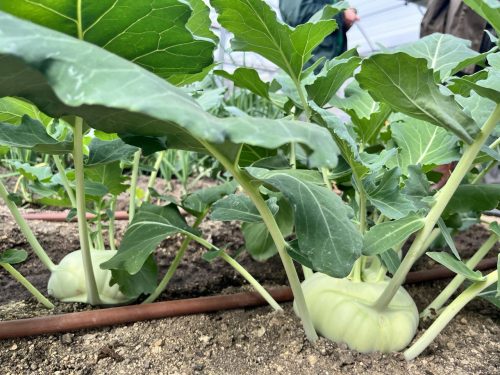
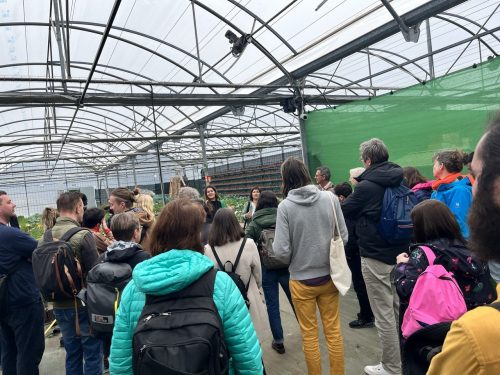
There was then a visit to the greenhouse and gardens, which are maintained by students at the university, with all produce being donated to local food banks. For the final session of the conference, attendees chose from four workshops: on the future of urban agriculture, on sustainable public procurement, on planetary health and social engagement and a session where participants were invited to play the ‘Edible City Game’, which is a simulation game offering the opportunity to build a more sustainable Sant Feliu de Llobregat.
The conference closed with a speech from Nevelina Pachova from RMIT Europe, inviting attendees to join the Edible Cities Network to stay in contact and carry on the conversations initiated over the 3 days. The day ended with a goodbye lunch held outside, with a final opportunity for networking between participants.
